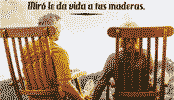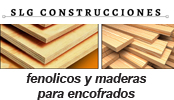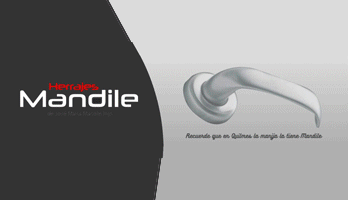
Goodbye to the crystal: the revolution of the transparent wood of a Swedish scientist (that you will want to put in your windows)
For years his project was a source of laughter, until the result has been seen. It saves energy, it is biodegradable, it does not generate a magnifying glass effect inside the house, it preserves privacy ... Its inventor calculates that in five years it will be used in homes
Who has visited the Glass House, or House of Glass, of Philip Johnson in Connecticut (USA) affirms that it has the sensation of being walking through the field with a heavy roof over it. The architect built this house in which he lived until his death with the conviction of intervening only in nature using glass walls. This option of transparent walls today can be closer to domestic use.
The Swedish scientist Lars Berglund, professor of the Wallenberg Wood Science Center of the Royal Institute of Technology of Stockholm (KTH), has created the first transparent and biodegradable wood that can become the constructive element of the future. For this he eliminated the lignin from the balsa wood, the component that gives rigidity to this material and makes it opaque, and the resulting substrate impregnated it in a transparent polymer. Thus he obtained a material similar to wood in rigidity, which allows light to pass through and, in addition, is capable of absorbing heat.
"Wood is by far the most used biological material in buildings, it is also very attractive because it comes from renewable sources and offers excellent mechanical properties, including strength, toughness, low density and low thermal conductivity." clarifies the Swedish scientist.
One of the direct effects of using this type of transparent wood is aimed at its ability to absorb heat, causing the opposite effect to that felt in the stifling interior of a glass building exposed to the sun. With its use, the construction sector would save costs for a correct air conditioning and would help the development of solar energy. Transparent wood is a good material to be used in large areas of solar panels, it is low cost, easy to reach and renewable.
But what the scientific community and the architects wonder is whether this material could also be used for windows and facades. When the lignin is extracted, the wood becomes white, but not naturally transparent. That is, it would be perfect to create walls that let in light but kept the privacy of the interior.
Diego Barajas, from the Spanish studioHusos Arquitectos, reflects on this transparent wood, also, from a social perspective: "It would be interesting to ask ourselves how it could serve to build new microclimates not only in thermal and environmental terms, but also socially. construction of spaces that are thermally protected and at the same time more fluid and visually less fragmented, with the passage of light, shadows or new lighting nuances would be generated, perhaps leading to new visual relationships between activities in the city that tend to remain separate ".
Lars Berglund, who began with these investigations in 2016, is currently working on the industrial production of this new material, with other types of wood, improving its transparency. A few days ago he commented, in front of the American Chemical Society, that "the only part of this material that is not biodegradable is acrylic, but we hope to replace it with another bio-based polymer." In five years, Berglund foresees the first domestic applications in interior design.

IT MAY INTEREST YOU
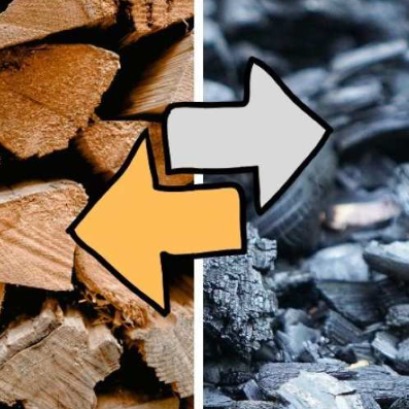 Canadian researchers make biochar from wood waste that rivals steel in strength
Canadian researchers make biochar from wood waste that rivals steel in strength
Researchers at the University of Toronto have developed monolithic biochar from wood that can reach an axial hardness of up to 2.25 GPa, similar to mild steel.
 Native forest | In Misiones, controls are tightened on routes for illegal transport of native wood, logging of forests without permits and fraudulent digital guides
Native forest | In Misiones, controls are tightened on routes for illegal transport of native wood, logging of forests without permits and fraudulent digital guides
Informality in forestry activity in Misiones was once again evident, the culture of operating illegally is a historical problem, and the Ministry of Ecology and Renewable Natural Resources carries out the corresponding control and inspection operations in the regulation of productive activity and sustainable management for the use of native forests.
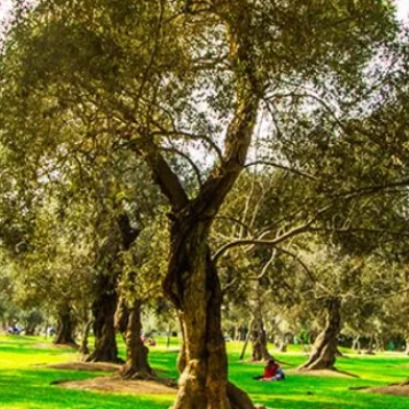 The city in South America that breathes thanks to a thousand olive trees planted in the 17th century
The city in South America that breathes thanks to a thousand olive trees planted in the 17th century
In the heart of South America there is a city that, among the noise and concrete, still breathes thanks to an olive forest

